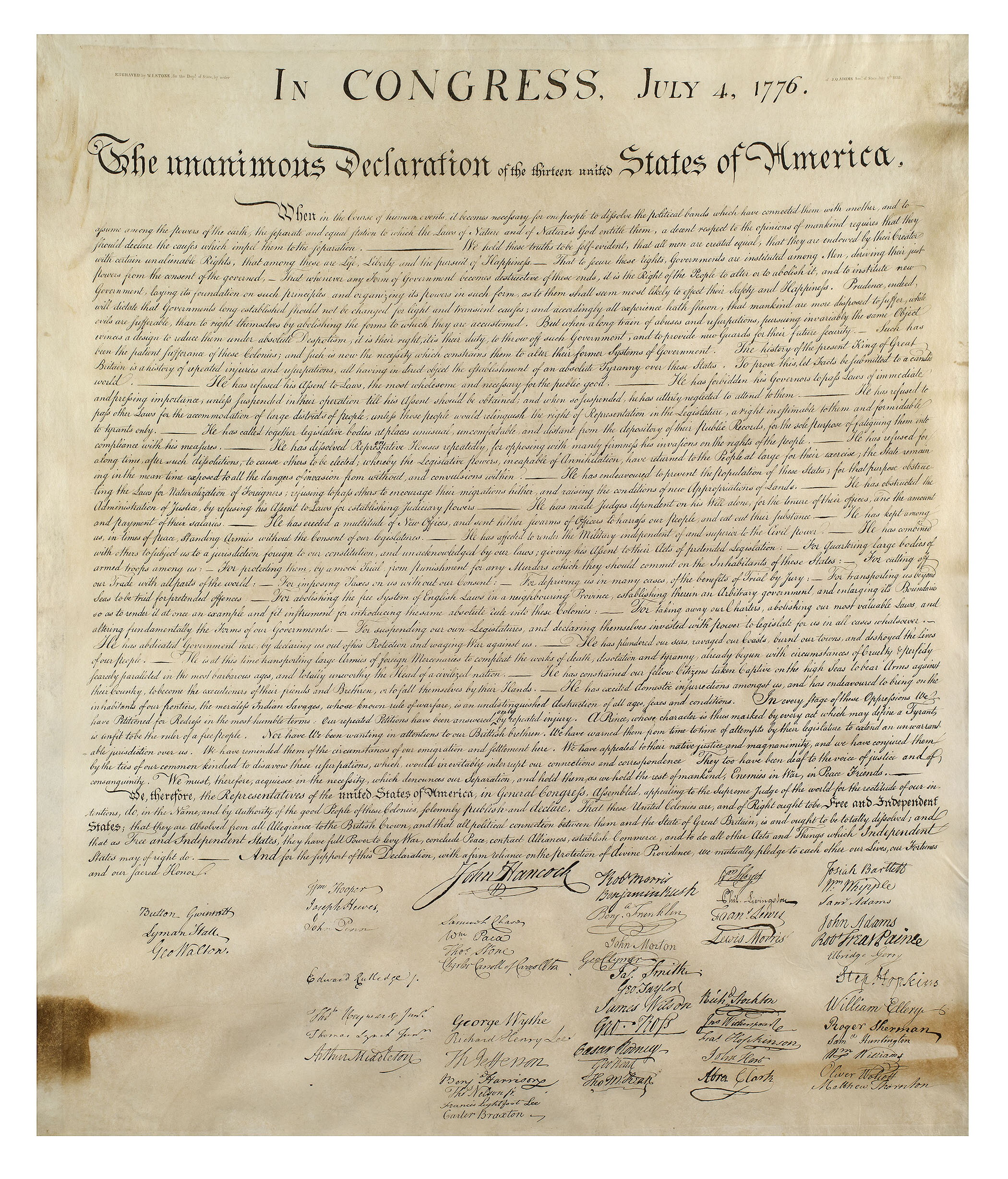The Declaration of Independence and the Founding Era are popular topics for students of all ages. Explore programs specifically designed for K-12 students below and learn about opportunities to become involved!
History U
High School students can take graduate-level self-paced courses in American history taught by the nation’s top historians. Taking a History U course can enhance college applications, supplement classroom learning, and allow you to explore your own love of history. Courses will be added throughout the year and those with strong connections to the Declaration and Founding Era are highlighted below.
FOUNDATIONS OF AMERICAN GOVERNMENT
Join Professor Denver Brunsman as he examines the “why” and the “how” of American government through in-depth discussion of its history and workings. He explores the ideals set forth in the Declaration of Independence and many other founding documents.
History School
Each summer, hundreds of students come together to learn from award-winning history teachers live on Zoom. Our courses are for various grade levels and cover a variety of topics and eras in American history. You can watch recordings from past classes and sign up for upcoming courses.
Black Lives in the Founding Era
Taught by Jason Butler for upper elementary and middle school students (3rd–8th grade). Learn about Black Lives in the Founding Era through primary source documents. Each week students will examine a different historical figure—some famous and some little known—and their life, legacy, and accomplishments.
Hamilton’s World: Founding Era Documents
Taught by Tim Bailey for elementary-age students and families. How did the United States become a country? How do we know that we have the real story? We know because we have evidence written and created by people who lived at that time. Students looked at some of that evidence and explored the birth of our nation through words and pictures that can tell us what really happened. This course shows students how to use primary sources to understand key battles of the American Revolution. Continue your learning with Hamilton’s World: People from the Founding Era.
Explore All History School Courses
Transcribe!
Become a digital volunteer and help the Institute transcribe documents from the Gilder Lehrman Collection. Typed transcripts will help make primary sources more accessible for students, teachers, and researchers. This opportunity is available to students who are at least thirteen years old. You can start transcribing once you create a free account by clicking the “Create Account” option in the top menu bar and completing the form. Some documents you could transcribe include:
FOUNDING ERA NEWSPAPERS
These newspapers are important sources of unique information about the Founding Era that we cannot find elsewhere. You can explore the “breaking news” of the American Revolution through contemporary newspapers. In addition to the political and military news of the day, these periodicals also published a wealth of other newsworthy items and advertisements that impacted the lives of Americans in the Founding Era. Transcribing these documents not only makes them more accessible, but it is also a great way to learn history from the people who experienced it.
BLACK LIVES IN THE FOUNDING ERA
This selection of documents sheds light on what life was like for some Black Americans in the eighteenth century. Taken from more than 200 books, magazines, and newspapers, these texts—which are largely about enslaved people and the institution of slavery—provide insight into the experiences of some Black Americans during the founding era. This collection of documents will be regularly updated as more material is discovered within the Gilder Lehrman Collection.
This transcription opportunity is part of the Gilder Lehrman Institute’s Black Lives in the Founding Era project, which restores to view the lives and works of a wide array of African Americans in the period 1760 to 1800.
Content warning: The language and content of these materials may be difficult for some readers. Many of these documents pertain to the institution of slavery and racism in the eighteenth century and demonstrate the often harsh circumstances that Black men, women, and children faced. Students should be advised that while some of these materials may be upsetting, topics such as enslavement and racial violence are essential to the study of US history.
